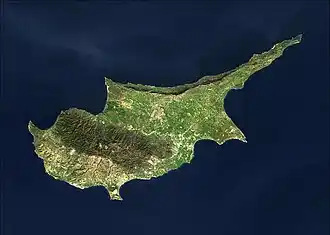Birth records in Cyprus provide valuable insights into the island’s demographic, social, and cultural history. They are essential for genealogical research, historical studies, and administrative purposes. These records have evolved over time, reflecting changes in governance, administrative practices, and societal norms.
Historical contextHistorical context

Cyprus, strategically located in the eastern Mediterranean, has a rich and complex history. It has been under various rulers including the Byzantines, Venetians, Ottomans, and British, each leaving a distinct mark on the island’s administrative systems, including the recording of births.
During the Ottoman period (1571-1878), birth records were sporadic and primarily maintained by religious institutions. The Ottoman Empire did not have a centralized civil registration system, so local churches and mosques often took on the role of recording births, baptisms, etc. These records were kept in Greek Orthodox, Maronite, and Armenian churches, as well as in Muslim mosques, reflecting the island’s diverse religious composition.[1]
The British colonial period (1878-1960) introduced more systematic record-keeping practices. The British administration established a civil registration system in 1928, which required the registration of births, deaths, and marriages. This system marked a significant shift from religious to civil oversight of vital statistics. The records from this period are more consistent and standardized, providing a clearer picture of the island’s demographics.
Post-independence eraPost-independence era
After gaining independence in 1960, Cyprus continued to refine its civil registration system. The Republic of Cyprus established the Department of Civil Registry and Migration, responsible for maintaining birth, death, and marriage records. This centralized system ensures comprehensive and accurate record-keeping, essential for various administrative and legal purposes.
In the Turkish-occupied northern part of Cyprus, following the division of the island in 1974, a separate administrative structure was established. The Turkish Republic of Northern Cyprus (recognized only by Turkey) maintains its own birth records, further complicating the island’s administrative landscape.
Accessing birth recordsAccessing birth records

Access to Cypriot birth records varies depending on the period and region. For the Greek Cypriot south, the Department of Civil Registry and Migration holds records from 1928 onwards. Researchers can request copies of birth certificates, which typically include the child’s name, date and place of birth, and parents’ names. For earlier records, church archives are invaluable resources. These archives often require specific knowledge of the local religious institutions and may involve more complex retrieval processes.
In the Turkish Cypriot north, the administration maintains its own civil registry. Accessing these records may be more challenging due to the political situation and limited international recognition. However, the Turkish Cypriot authorities do maintain a system for requesting birth records, primarily for legal and administrative purposes within the northern territory.
See alsoSee also
Explore more about Cypriot birth recordsExplore more about Cypriot birth records
References
- ↑ Classical Ottoman society and administration. Encyclopedia Britannica


